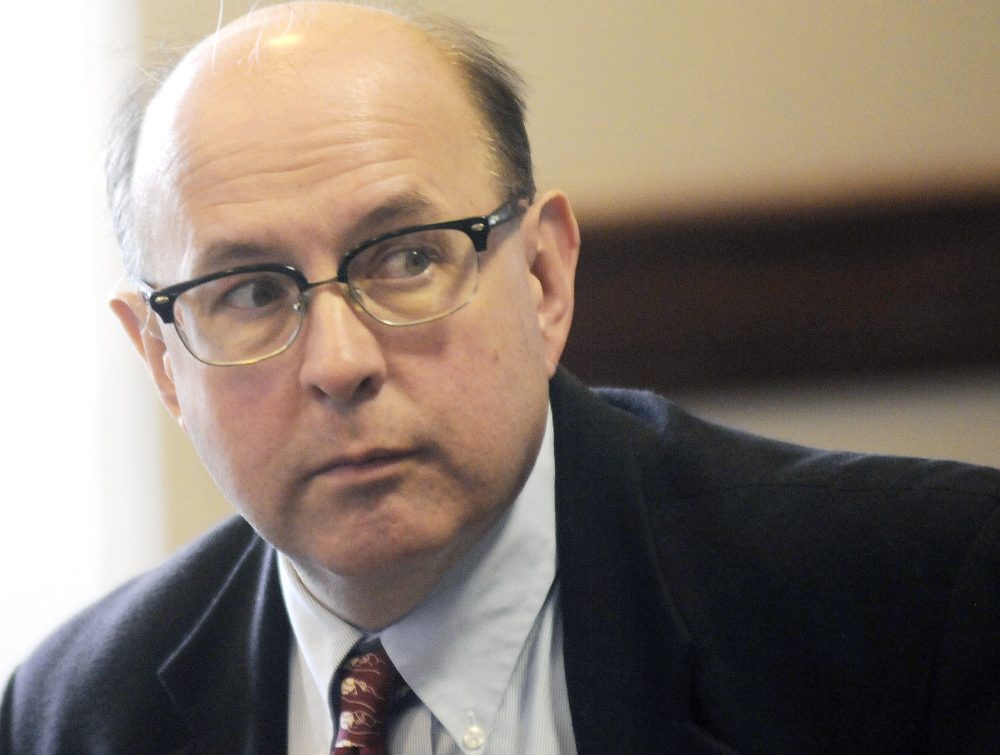Maine Secretary of State Matthew Dunlap is making a serious mistake by agreeing to participate in a sham “voter integrity” commission established by President Trump to validate his ludicrous claims about voter fraud. But it is not too late for Dunlap to withdraw, and it’s the right thing to do.
Arguments about the extent of voter fraud and voter suppression are not new, with Republicans tending to claim that voter fraud is a major problem that requires laws making it harder to register and vote, such as strict voter identification laws. Democrats see these laws as aimed at suppressing the votes of those likely to vote for Democratic candidates.
While there is no question that there is a small amount of voter fraud, there is virtually no proven impersonation voter fraud (where one person goes to the polling place claiming to be another) – the only kind of fraud that voter ID laws prevent. For my 2012 book “The Voting Wars,” I tried to find a single instance anywhere in the United States of an election being called into question by impersonation fraud, and I could not find one. Whether or not voter ID laws actually suppress a lot of votes, it is clear that they don’t prevent any measurable fraud or do anything to promote voter confidence.
President Trump raised the voter fraud rhetoric to an unprecedented extent by claiming before the election that there was massive voter fraud taking place in “urban” (read: minority) areas of Pennsylvania and elsewhere. After the election, he made a totally debunked claim that 3 million or more noncitizens voted in 2016. So far, the most credible count of such votes, by the Brennan Center for Justice, is 30 possible noncitizen votes across the entire country. That’s right: not millions, not thousands, not even hundreds.
No responsible election professional or academic has supported Trump’s claims of massive fraud. There’s only one election professional I know of who has: Kansas Secretary of State Kris Kobach, who said, without credible evidence, that there could be a million or more fraudulent votes in the election. Kobach has a reputation for hyping unsubstantiated claims of voter fraud for his own political agenda.
Of course, Trump and Vice President Mike Pence have put Kobach in charge of a so-called “Election Integrity” commission nominally headed by Pence. Prior commissions examining election problems have been bipartisan and headed by party elders: former presidents Jimmy Carter and Gerald Ford in 2000, Carter and former Secretary of State James A. Baker III in 2004, and Bob Bauer and Ben Ginsberg in 2012. There’s no Democratic co-chair of this commission.
No one expects this commission to do what the other commissions did: consult experts, hear testimony and issue a data-driven report on ways to improve the electoral process for all Americans, Democrat or Republican. Instead, the commission’s report is likely to echo the president’s unsubstantiated allegations that fraud – or the potential for fraud – is serious. So serious, the commission will likely urge the passage of national legislation making it harder for people to register and vote. It is a means to suppress votes on a national scale.
And this is where Maine’s secretary of state fits in. He’s going to be used like a patsy.
The new commission is supposed to have up to 15 members; so far, Pence has named just seven, only two of whom are Democrats: New Hampshire Secretary of State Bill Gardner, and Maine’s Matthew Dunlap.
Republican supporters of the commission are desperate to have Democrats serve on the commission so that they can claim it is “bipartisan.” They are looking for anything to give this commission legitimacy. Bob Bauer, the former White House counsel for President Obama and former co-chair of the 2012 Presidential Commission on Election Administration, has warned everyone to stay away from this commission. (The 2014 report by Bauer and Mitt Romney’s election lawyer, Republican Ben Ginsberg, with bipartisan recommendations for improving the election process, was quickly removed from government websites shortly after Trump’s inauguration, with no explanation.)
Dunlap is skeptical of Trump’s claims, and has said his purpose in serving on the commission is to work from the inside, with a seat on the table. There is no reason to believe he can serve this purpose, even if he issues a minority report disagreeing with its findings. The report will still be trumpeted as a “bipartisan” commission that reached certain conclusions.
Dunlap is making a mistake, but it is not too late. People around the country are watching his participation with concern. Maine residents who disagree with his decision to join the commission should let their voices be heard. It’s a necessary step to prevent the further deterioration of voting rights.
Send questions/comments to the editors.



Success. Please wait for the page to reload. If the page does not reload within 5 seconds, please refresh the page.
Enter your email and password to access comments.
Hi, to comment on stories you must . This profile is in addition to your subscription and website login.
Already have a commenting profile? .
Invalid username/password.
Please check your email to confirm and complete your registration.
Only subscribers are eligible to post comments. Please subscribe or login first for digital access. Here’s why.
Use the form below to reset your password. When you've submitted your account email, we will send an email with a reset code.